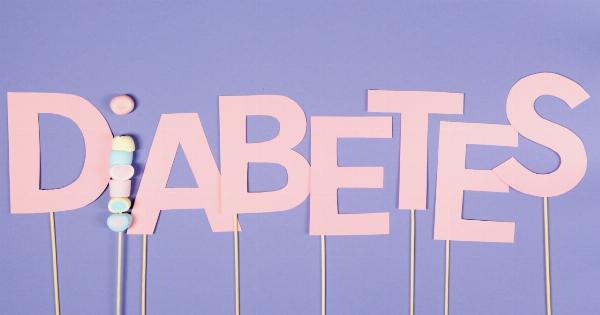Depression is a mental health condition that affects millions of people around the world. It can lead to feelings of sadness, loss of interest, and even physical symptoms like fatigue and appetite changes.
While there are many factors that can contribute to depression, including genetics and life events, there are also lifestyle changes that can help manage symptoms. One of these is avoiding certain foods that can worsen depression. Here are five common foods to avoid if you’re struggling with depression.
Sugar
Sugar is a common ingredient in many foods, from sweets and desserts to processed snacks and drinks. While sugar can give you a temporary boost of energy and mood, it can also cause a crash that leaves you feeling worse than before.
Sugar can also disrupt your body’s natural balance of hormones, including those that regulate mood and energy. Studies have found a link between high sugar intake and an increased risk of depression and anxiety. If you’re struggling with depression, avoid foods and drinks that are high in added sugars, including soda, candy, and baked goods.
Caffeine
Caffeine is a stimulant that can increase alertness and energy, but it can also trigger anxiety and disrupt sleep.
Lack of sleep and disrupted sleep patterns are common in depression, so it’s important to avoid anything that can interfere with your rest. Caffeine can also increase heart rate and blood pressure, which can worsen physical symptoms of anxiety or depression. If you’re struggling with depression, avoid or limit your intake of caffeinated beverages like coffee, tea, and soda.
Alcohol
Alcohol is a depressant that can also disrupt sleep and affect mood. While many people turn to alcohol as a way to relax or cope with stress, it can actually worsen symptoms of depression over time.
Alcohol can interfere with the balance of neurotransmitters in the brain, including those that regulate mood and emotion. It can also worsen anxiety, irritability, and other symptoms of depression. If you’re struggling with depression, it’s best to avoid or limit your alcohol intake.
Processed Foods
Processed foods are often high in sugar, salt, and unhealthy fats, which can all contribute to inflammation, weight gain, and other health problems.
Inflammation is believed to play a role in depression, so it’s important to avoid anything that can cause or worsen inflammation in the body. Processed foods can also be low in essential nutrients like vitamins, minerals, and fiber, which can contribute to feelings of fatigue and malaise.
If you’re struggling with depression, focus on whole, nutrient-dense foods like fruits, vegetables, whole grains, and lean proteins.
Saturated Fats
Saturated fats are found in many animal products like meat, dairy, and eggs, as well as some plant-based sources like coconut oil.
While some amount of saturated fat is important for a healthy diet, a diet that’s too high in saturated fats can contribute to inflammation, weight gain, and other health problems. Studies have also found a link between a diet high in saturated fat and an increased risk of depression.
If you’re struggling with depression, it’s best to limit your intake of saturated fats and focus on healthier sources of fats, like olive oil, nuts, and seeds.
Conclusion
If you’re struggling with depression, there are many lifestyle changes you can make to help manage your symptoms.
One of these is avoiding certain foods that can worsen depression, including sugar, caffeine, alcohol, processed foods, and saturated fats. By focusing on whole, nutrient-dense foods and limiting your intake of these common triggers, you may be able to improve your mood and reduce your risk of depression.






























